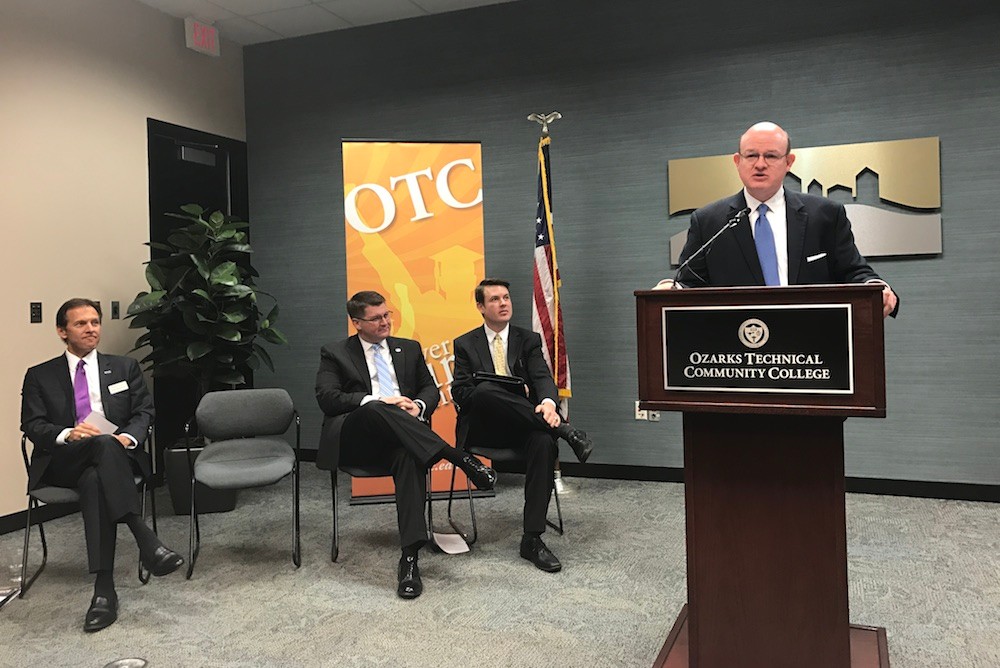YOUR BUSINESS AUTHORITY
Springfield, MO
YOUR BUSINESS AUTHORITY
Springfield, MO

Ozarks Technical Community College officials today revealed the results of a study indicating the school’s 2015-16 economic impact on the southwest Missouri region came to $234 million.
Within that figure, the school’s alumni impact — contributed by former students now in the regional workforce — came to $152 million. Operations spending was $63 million, student spending was $17.1 million and construction spending was $1.9 million, according to the study conducted by economic impact and labor market data researcher Emsi.
Further, the study found for every dollar local taxpayers invest in OTC, they get a $4.70 rate of return from added tax and public-sector savings due to increased tax revenue from students.
Speaking at the Springfield Area Chamber of Commerce, OTC Chancellor Hal Higdon said 99 percent of the school’s graduates stay in Missouri, and 90 percent remain in the Springfield-area taxing district.
“We’re proud of what we’re doing, but it’s not enough,” he said, tempering the study results by noting OTC receives the least amount of funding statewide among community colleges. “We get the least and do the most.”
Responding to a question in the audience from Sen. Jay Wasson, R-Nixa, Higdon said more short-term training is needed, but that often goes against federal requirements. He said federal officials believe more in the “butts in seats” model for higher education, rather than quickly getting students into the workforce.
“I think we can do a better job,” he said, noting areas such as computer coding and automotive mechanics would benefit from quicker studies, similar to the same way welding already does.
Higdon also called on more legislative help for working middle-class students, whose income may be just above the maximum to receive Pell Grants.
Chamber President Matt Morrow, who introduced the speakers, said the greatest need of businesses in the region is workforce availability, and OTC is working to address that shortfall.
OTC Board of Trustees Chairman Chip Sheppard, shareholder for law firm Carnahan, Evans, Cantwell & Brown PC, also spoke to the college’s workforce efforts. Like Higdon, he called on more funding from the state.
“We are not fulfilling the entire need of the community. We’ve obviously got something going, and we really need to make it bigger,” Sheppard said. “We’re not a goose. I like to think of us as the eagle that lays the golden eggs, but we’ve got to feed it. We get fed less from the state per student of any of the other community colleges. I think we do more with those dollars than they do.”
Cedars Family Restaurant has cooked up comfort for over three decades.
Aquatic center fronting Sports Town in the works
Spring 2024 Construction in the Ozarks
SPD issues 36 citations to businesses for violating city’s gaming machine ban
Lost & Found Grief Center hires executive director
Nixa spokesperson takes job with city of Joplin